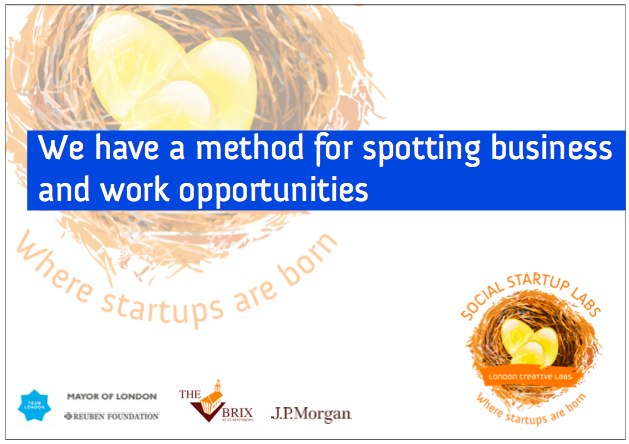London Riots and Youth Unemployment: Sinking or Swimming?
 Monday, August 8, 2011 at 1:24PM
Monday, August 8, 2011 at 1:24PM I wrote the following previously unpublished blog post last February, but in the wake of the riots in London last August this seems relevant. Even though the behaviour of the rioters was undoubtedly criminal, that doesn't mean there isn't an underlying sense of grievance over socioeconomic exclusion motivating them.
Recently in the process of doing some research, I came across a book called Not Quite Adults which addresses the changing pathways to adulthood being taken by today’s young people. According to this book, what appears to be arrested development or “failure to launch” may actually be a sensible strategy for navigating the cultural and economic forces shaping our complex society. I’m not going to elaborate on the book’s main thesis here.
What struck me was the book’s metaphor of swimmers vs treaders. Swimmers have invested enough in themselves educationally and their careers in order to successfully obtain and hold on to well-paid, highly-skilled jobs. Whereas treaders have prematurely taken on the challenge of marriage, children and a job to pay the bills before they have reached a sufficient level of educational and professional attainment thus becoming trapped in poorly-paid, less secure jobs.
What this metaphor doesn’t address is the truly wealthy and the truly poor. Let’s call them flyers and sinkers respectively. In the UK, the term commonly used by institutions for sinkers is NEETs (Not in Employment, Education or Training).
Parents play a huge role in whether their children become flyers, swimmers, treaders or sinkers. Flyers inherit sufficient wealth that they never have to worry about working for a living unless they are recklessly wasteful enough to burn through their inheritance. Swimmers tend to have well-off, middle-class, hands-on parents who support them in getting a good education, convey to them the communication skills, social and economic cultural norms & provide access to the social networks necessary to get ahead as a professional in today’s world. Treaders tend to learn all the wrong lessons from their poorer, struggling parents. Sinkers are similar to treaders, with a few distinctions like neither of their parents work (and perhaps have never worked) and the very idea of a job is an aspiration that is out of reach.
In Lambeth, South London as in many inner cities far too many young people can only be described as sinkers and unfortunately institutions who should be part of the solution in helping them are all too often part of the problem. Parents and the community have lost their grip on the young people, bullying is endemic, young people band together in gangs for mutual protection, indulge in drink, drugs and casual often unprotected sex, the gangs get involved in crime and violence, the downward spiral becomes self-perpetuating. These are young people who have lost faith in the system and don’t have any real hope for their futures. Most importantly, they have no pathway to navigate to an adulthood that is both truly viable for them and for society.
I’ve met some of these young people and a number of them are much brighter and more capable than you would think. The soft infrastructure of guidance and support that would enable them to make it just isn’t there. Through no fault of their own, they’ve been left trapped in the margins of society. A Big Society that doesn’t reach these young people isn’t a Big Society worth having.
Lord Scarman’s report on the 1981 Brixton Riots advised the government to tackle the disproportionately high levels of unemployment amongst young black men - as high as 50% in Brixton at that time. Writing thirty years later, I can attest to the lack of a systemic solution to high levels of unemployment that various demographics have suffered, not just in Brixton but in the rest of the UK. The recent council budget cuts arising from the Comprehensive Spending Review of 2010 may prove to be the last straw. The risk of a reoccurrence of the Brixton Riots in the next two years is quite high and this time around both the police and the rioters will be much more heavily armed with a higher death toll likely. Tunisia and Egypt are extreme examples of what happens when the hopes and aspirations of people are ignored for decades.
Bottomline, the difference between swimmers and sinkers seems to boil down to two factors:
- family background
- levels of investment in education (academic as well as social/economic norms and soft skills) and social networks
As an intervention, the Social Startup Labs programme devised by London Creative Labs can directly impact on social/economic norms, soft skills and social networks. Indirectly, Social Startup Labs can provide a pathway to employment, education and training through the creation and incubation of new businesses in the form of social startups that provide employment and the provision of an supportive ecosystem for social startups that delivers education and training for people participating in the social startups.
August Postscript: We are about to launch our first full scale Social Startup Labs programme in the Loughborough Junction neighbourhood of Brixton, which has one of the highest level of unemployment in London. In due course, we'd love to take the programme to places like Tottenham and Enfield. We are keen to work with anybody who wants to collaborate with us in making the programme the sort of successful intervention that is clearly so very much needed in the wake of the London riots.




Reader Comments